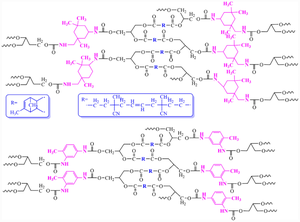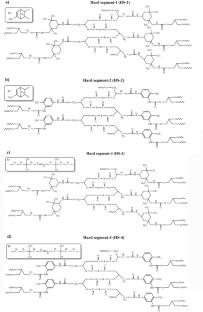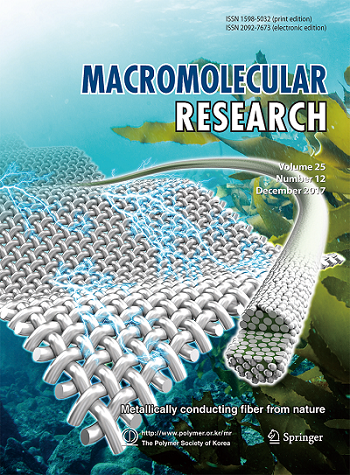Study of the structure and properties of adhesives and compounds based on epoxy urethane oligomers synthesized from polyesters
Abstract
The goal of present work is to create a polymer base for compounds, binders for materials with different fillers and adhesives. The article presents the results of studies of the physical and mechanical characteristics of urethane-containing elastomers based on epoxy urethane oligomers. The reaction proceeded in two stages and included the formation of oligodiisocyanate. Based on them, elastomers with urethane-hydroxyl hard segments were synthesized. Methyl nadic anhydride and an oligodiendiol with terminal carboxyl groups were used as hardeners. The deformation-strength properties of elastomers, as well as the strength of the adhesive joints for aluminum and steel, were studied. Using an oligomer with carboxyl groups as a hardener lowers the glass transition temperature of elastomers and improves their deformation characteristics. The glass transition temperature of the samples was determined using a differential scanning calorimeter. The physical and mechanical tensile characteristics of the obtained materials were determined on a universal testing machine. Elastomers cured with an oligomer containing carboxyl groups can be used as a polymer base for compounds and binders for materials with different kinds of fillers due to their low modulus and high deformation properties. Elastomers cured with methyl nadic anhydride may find use as adhesives.
Graphical abstract



 求助内容:
求助内容: 应助结果提醒方式:
应助结果提醒方式:


